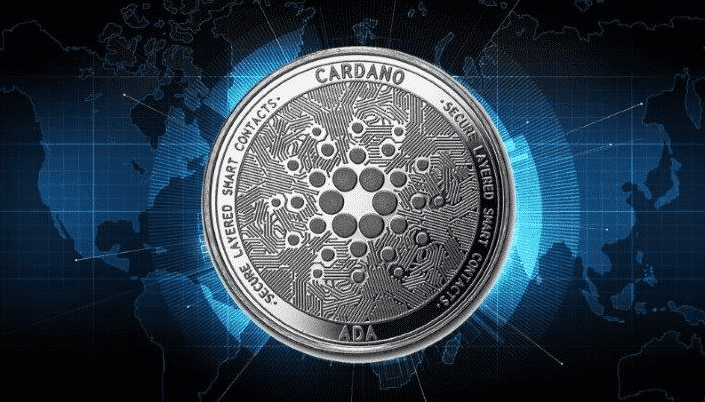Cardano Plan 529 Before Plomin Hard Fork Upgrade

The Cardano (ADA) system, one of the most inventive and technology-based blockchain platforms, is the “Plomin Hard Fork” initiative. If Alonzo and Vasil were successful, the forthcoming hard fork would solve the scalability and usability of Cardano as well as the user experience. Plan 529, Plomin Hard Fork, and Cardano’s goals will be covered in this article.
Understanding Plan 529
Plan 529 serves as a strategic basis for the successful Plomin Hard Fork and for Cardano’s further development compared to the other blockchain ecosystems, which are its main rivals. This project deals with issues by upgrading the system, improving it, and comprehensive testing. The Cardano project platform, called Plan 529, is supplemented by DeFi, smart contracts, and blockchain governance, which are important elements.
 Adding stronger programming languages and more robust developer tools will make it easy for developers to build and launch dApps on the Cardano network. The more programmers join the platform, the bigger the Cardano ecosystem will become, and this will add new use cases to the blockchain.
Adding stronger programming languages and more robust developer tools will make it easy for developers to build and launch dApps on the Cardano network. The more programmers join the platform, the bigger the Cardano ecosystem will become, and this will add new use cases to the blockchain.
A Milestone for Cardano
One of Cardano’s most recent major updates is the Plomin Hard Fork, which is forecasted to greatly impact the blockchains’ scalability, transaction speed, and general efficiency. Hard For is a permanent situation whereby the blockchain network goes one way, provides solutions to the existing problems of the network, and or can add new features. Plomin Hard Fork is supposed to be the key element that can lower people’s perceived latency problems and, at the same time, increase transaction throughput.
The speed with which the network operates its processes. Cardano has repeatedly proved that the cost and scalability of a blockchain are crucial factors in its success, with the Plomin update being one of those things that will contribute to its success. Along with the Plomin update, Plomin’s significant network leverage will probably reduce Cardano trading fees, thereby increasing its accessibility to decentralized finance companies that prefer fast and cheap blockchain solutions.
Interoperability and Multi-Chain Compatibility
Cardano blockchain network compatibility is important to Plan 529. Blockchain interoperability is essential as cryptocurrencies diversify. Cardano wants to connect to Ethereum and Polkadot for data and asset exchanges. Cardano’s multi-chain ecosystem connections will improve after the Plomin Hard Fork. Interoperability will help Cardano grow its user base and enable cross-chain applications for DeFi and enterprise solutions. Cardano provides a flexible and interoperable decentralized finance platform using blockchain links.
Cardano’s growth depends on interoperability and multi-chain compatibility after the Plomin Hard Fork. Cardano wants to eliminate blockchain ecosystem isolation by improving communication. Cardano dApps can interface with other platforms, expanding use cases and adoption. Blockchain networks share value and liquidity with multi-chain compatibility. Cardano has become a hub in the fast-changing blockchain world, improving its competitiveness and scalability in the decentralized ecosystem.
The Market Impact of Plan 529 and Plomin Hard Fork
With the platform improving scalability and functionality, ADA, the native token, will be more popular. Institutional investors who are looking for trustworthy and scalable blockchain platforms. May become more involved in their Cardano shares as the network ensures stability. As the blockchain market grows and more possibilities become available, Cardano’s strategic approach will lead it to be one of the best blockchain platforms alongside Ethereum, Solana, and others.
The plan of 529 and the Plomin Hard Fork could impact ADA and cryptocurrency. Developers and institutional investors become even more interested in Cardano’s scalability, transaction speed, and smart contract features as they grow. The Plomin Hard Fork has strengthened blockchain interoperability and decentralized finance (DeFi), which might influence ADA demand.
Cardano DeFi apps will raise throughput, which in turn may lead to ADA appreciation. Cardano’s links with the other blockchain networks might allow cross-chain apps, which means an increase in its user base. Positive market moods may increase competing blockchain networks, including Cardano’s. Furthermore, Cardano may become the top blockchain platform. Through a Plomin Hard Fork, that would also promote its adoption and value.
Also Read: Look for These Five Cryptocurrencies Before Year’s End
Conclusion
Plan 529 is a well-developed strategy for Cardano to be number one in the blockchain sector. The Plomin Hard Fork is the next serious step in the climb for Cardano in the competitive blockchain area. Cardano is ready to show its growth by emphasizing scalability, DeFi, and interoperability. Cardano at Plan 529 will score developers. Institutional inventors and users, and as a result, it will become the leading blockchain ecosystem. Cardano’s future is promising with powerful technology and better user experiences.
[sp_easyaccordion id=”5116″]
